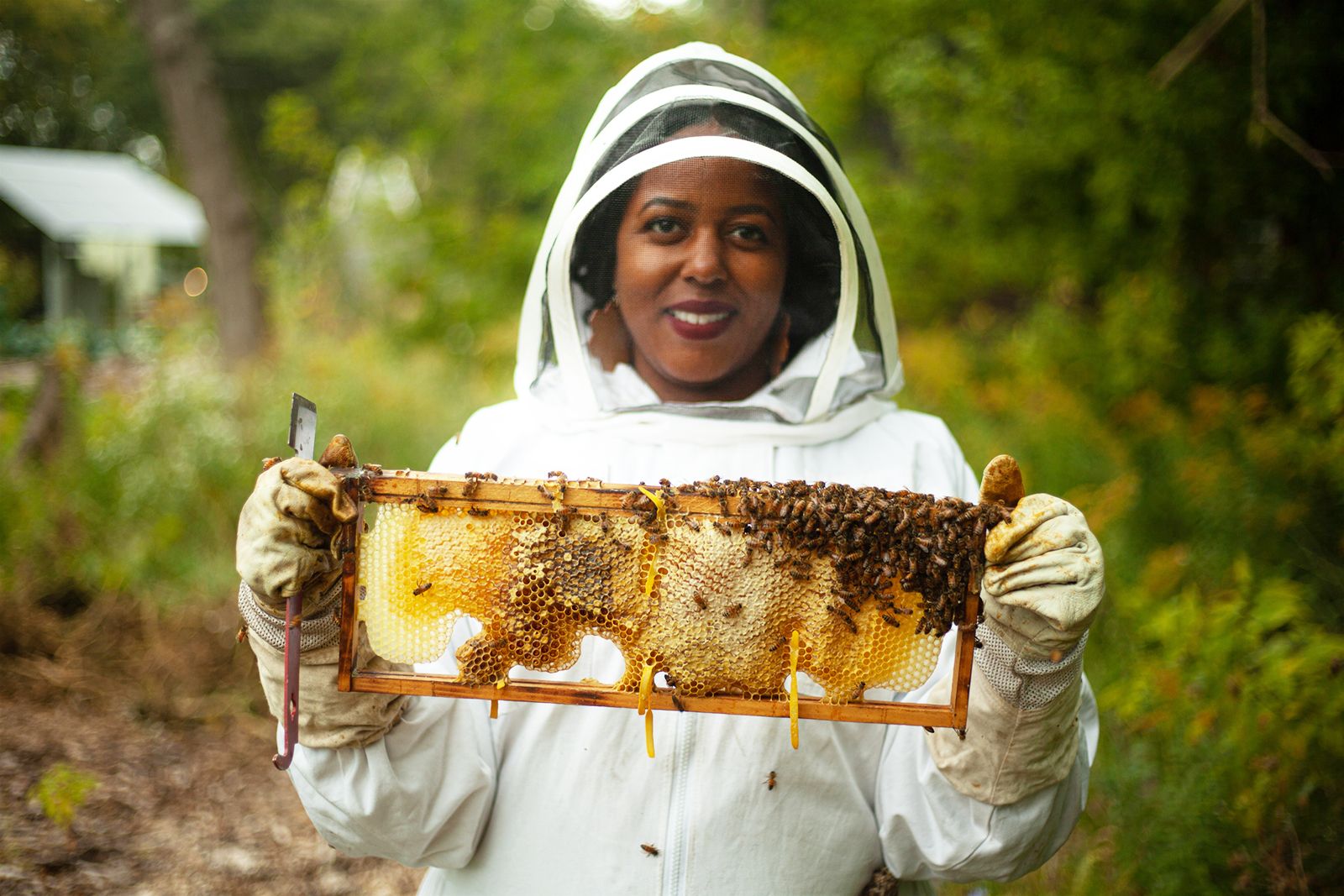Beekeeping, a vital practice for ecological balance and honey production, often involves a crucial decision for beekeepers – where to set up their hives. The question “How Much Do Beekeepers Pay to Rent Land?” of land rental in beekeeping is as significant as the hum of bees themselves. In this exploration, we’ll delve into the factors influencing land rental costs for beekeepers, uncovering the sweet spots and challenges buzzing within the industry.
🏡 The Land Factor: A Hive’s Home Sweet Home
Choosing the right location for beekeeping is akin to selecting prime real estate. Beekeepers must assess various factors before settling on the perfect spot for their hives. Land quality, floral diversity, and proximity to water sources are key considerations. The land, essentially a canvas for the bees to forage and thrive, holds substantial weight in determining rental costs.
📊 Factors Influencing Land Rental Costs:
- Location, Location, Location: Just like in real estate, the geographical location significantly impacts rental rates. Beekeepers situated in regions with abundant floral resources, favorable climates, and proximity to agricultural areas might face higher demand for land, thereby affecting prices.
- Land Quality and Size: The quality of the land and its size are crucial determinants. Large expanses of well-maintained land with diverse flora suitable for bee foraging can command higher rental fees. Factors such as soil fertility, water accessibility, and the presence of pesticide-free areas also contribute to the overall value of the land.
- Landowner-Beekeeper Agreement: The terms of the agreement between the landowner and the beekeeper play a pivotal role. Some landowners may request a flat fee, while others may prefer a percentage of the honey yield as part of the rental arrangement. Negotiation skills and a clear understanding of mutual expectations are vital for a successful partnership.
- Accessibility and Amenities: Easy access to the beekeeping site, availability of amenities such as storage facilities, and the overall convenience of the location can influence rental costs. Beekeepers may find themselves paying a premium for well-serviced and easily accessible land.
- Local Regulations and Zoning: Zoning regulations and local ordinances can impact the feasibility of beekeeping in certain areas. Beekeepers might encounter additional costs or restrictions based on the legal framework governing agricultural practices and beekeeping in a particular region.
- Market Demand: In areas where beekeeping is a popular or emerging practice, the demand for suitable land may drive up rental prices. Understanding the market dynamics and competition can help beekeepers make informed decisions about land rental costs.
🌐 Navigating the Landscape: How Beekeepers Approach Land Rental
For many beekeepers, securing the right parcel of land is a strategic move that requires a combination of research, negotiation, and a touch of beekeeping intuition. Let’s explore how beekeepers typically approach the process of land rental, guided by the buzzing rhythms of their hives.
- Research and Site Assessment: Beekeepers conduct thorough research on potential sites, evaluating the floral diversity, prevailing weather conditions, and land quality. This step is crucial for ensuring the health and productivity of the bee colonies.
- Engaging with Landowners: Building positive relationships with landowners is a key aspect of the beekeeping journey. Beekeepers often approach landowners with a clear proposal, outlining the benefits of having bees on their property, the mutual advantages, and proposed rental terms.
- Negotiation and Agreement: Negotiation skills come to the forefront during the discussion of rental terms. Beekeepers aim to strike a balance between a fair rental cost and the potential benefits the land offers for honey production. Flexibility and open communication are essential for reaching a mutually beneficial agreement.
- Legal Compliance: Beekeepers ensure compliance with local regulations and zoning laws. Understanding the legal framework helps them navigate potential challenges and guarantees a smooth and lawful operation.
- Monitoring and Adaptation: Once the rental agreement is in place, beekeepers regularly monitor the health of their colonies and the productivity of the land. Flexibility is key, and beekeepers may need to adapt their strategies based on seasonal changes, environmental factors, or unexpected challenges.
🚀 The Sweet Rewards of Land Rental for Beekeepers
While the costs of renting land for beekeeping can vary, the rewards often outweigh the investment. Beekeepers gain access to prime foraging areas, contributing to the well-being of their colonies and the quality of honey produced. Additionally, positive collaborations with landowners can lead to long-term partnerships, benefiting both parties.
🌻 Conclusion: A Harmonious Buzz Between Bees and the Land
In the symphony of beekeeping, the land serves as a vital note, influencing the melody of honey production and the well-being of bee colonies. Understanding how much beekeepers pay to rent land unveils the intricate dance between apiarists and their chosen landscapes. With careful consideration, negotiation, and a touch of beekeeper’s finesse, the partnership between bees and the land can yield a sweet harmony that resonates through the buzzing world of apiculture. 🍯🐝
In the delicate dance between bees and the land, the question of “How Much Do Beekeepers Pay to Rent Land” haven reveals itself as a pivotal note in the symphony of beekeeping. As apiarists navigate the landscape, negotiating with the earth and forging partnerships with landowners, they not only invest in prime real estate for their buzzing companions but also sow the seeds for a harmonious collaboration that yields the sweet nectar of success. In the world of apiculture, where every hum is a testament to nature’s interconnected melody, the investment in the land becomes a poignant chord in the grand composition of sustainable beekeeping. 🌼🐝

